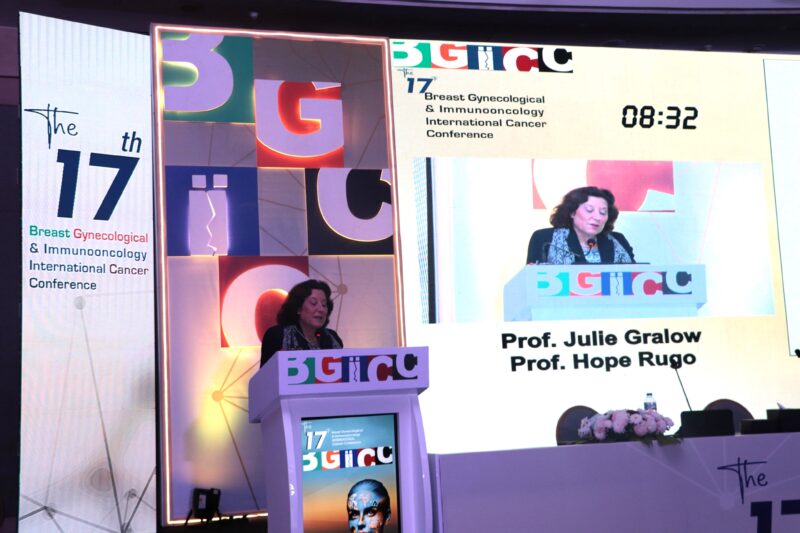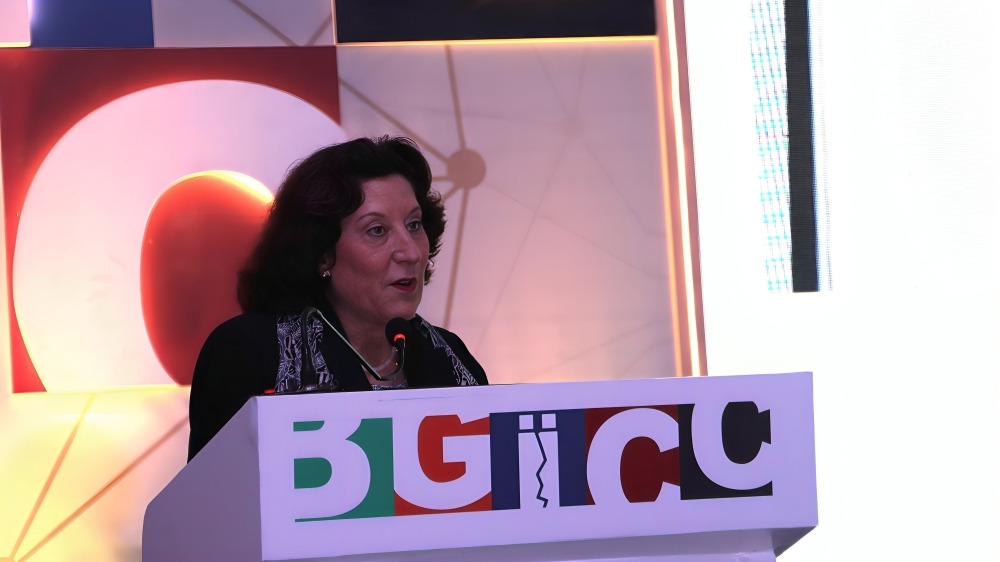During 17th Breast, Gynecological & Immuno-Oncology International Cancer Conference, Prof. Hope Rugo delivered a comprehensive argument focusing on the question of whether chemotherapy alone is sufficient for treating early-stage triple-negative breast cancer (TNBC), specifically for T1c node-negative disease.
Key Arguments Supporting Chemotherapy Alone
1. Efficacy in T1c TNBC:
- Retrospective studies show excellent outcomes with chemotherapy alone in early-stage TNBC.
- High breast cancer-specific survival rates (93–94%) observed, even in patients with residual disease after chemotherapy.
2. Heterogeneity in TNBC Subtypes:
- TNBC encompasses a wide spectrum of biological behaviors.
- Low-grade and high-TIL tumors often have favorable prognoses and may not benefit from escalation with immunotherapy.
- Chemotherapy remains effective for proliferative, basal-like subtypes typically associated with higher risk.
3. Balancing Risk and Benefit:
- Immune checkpoint inhibitors (ICIs) like pembrolizumab or atezolizumab can cause long-term toxicities, such as adrenal insufficiency, requiring lifelong management.
- Chemotherapy has a lower long-term toxicity profile with established, manageable risks.
4. Current Guidelines:
- No major guidelines (NCCN, ASCO, ESMO) recommend ICIs for T1c node-negative TNBC.
- Chemotherapy remains the standard of care in this setting.
Supporting Evidence
- KEYNOTE-522 Trial:
- Most benefits with pembrolizumab were observed in node-positive or higher-stage disease.
- T1c node-negative patients showed a small relative benefit with ICIs, not sufficient to justify routine use.
- SEER Data (2010–2019):
- T1c TNBC patients treated with chemotherapy showed excellent outcomes with event rates remaining very low.
- High Tumor-Infiltrating Lymphocytes (TILs):
- Retrospective studies highlight that patients with high TILs in T1c TNBC have outstanding outcomes without immunotherapy or even chemotherapy.
- Ongoing trials are exploring de-escalation strategies for high-TIL tumors.
Concerns with Immunotherapy in Early TNBC
- Toxicity Risks:
- Lifelong adrenal insufficiency in up to 8% of cases with some ICI regimens.
- Acute immune-related adverse events requiring lifelong management.
- Uncertain Benefits in Low-Risk Disease:
- Small absolute benefit in T1c TNBC.
- Immunotherapy’s cost and side effects outweigh its potential advantages in this subset.
Conclusion by Prof. Hope Rugo
For true T1c node-negative TNBC, chemotherapy alone is highly effective and remains the standard of care.
- Immunotherapy adds significant toxicity with minimal additional benefit for this low-risk population.
- Future strategies should focus on smarter, individualized treatment based on tumor biology, TIL levels, and other predictive biomarkers.

Further Reading:
BGICC 2025: Hear from Global Oncology Leaders
Introducing the Radiology Course at BGICC 2025
Get Ready for BGICC 2025: A Global Event in Cancer Care
The 17th Annual BGICC Conference Kicks Off in Cairo, Egypt with 5,000 Attendees
Scientific Insights from Prof. Hope Rugo: Advancements in Metastatic HER2+ Breast Cancer Therapy


